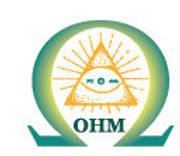What Is Medication-Assisted Treatment and How Does It Work?

There are many different methods proven to treat substance abuse. Patients receiving behavioral therapy and counseling may also benefit from medication-assisted treatment, or MAT. By combining MAT therapy with conventional therapy, some patients may achieve success in both treatment and sustainment of results. Here’s what you should know.
What Exactly Is MAT Therapy?
The Federal Drug Administration (FDA) approved several medications to treat disorders related to opioid and alcohol use. They include methadone, which works by stimulating the very same receptors in the brain as opioids. The brain believes it’s opioids, but the body doesn’t experience difficult cravings and withdrawals as a result of taking it.
Another approved option is buprenorphine, which behaves a little bit like methadone. It works to slowly reduce cravings and withdrawals. Naltrexone is formulated to create a barrier that blocks the effects of the drug on the brain.
How Does the Therapy Work?

Patients continue to receive the counseling they need to both understand why they crave drugs or alcohol and how to overcome those feelings. MAT therapy plays a vital role in relieving the body of those cravings without causing side effects that could otherwise make recovery difficult. It is referred to as “assisted” treatment because it is not the primary solution to the disease, but part of a well-rounded therapeutic program designed to treat addiction in different ways.
There are several key benefits associated with adding medication to a recovery program. Patients are more likely to remain sober, for example, and their odds of survival improve dramatically. Pregnant women experience more positive birth outcomes as a result of combining medication with therapy. Patients also experience social benefits, as they are more likely to get hired and maintain their position.
If you’re interested in learning more about MAT therapy, turn to Ohm Mental Health in Lewiston, ID. Proudly serving clients throughout the community, the mental health center offers comprehensive depression treatment and recovery services to assist patients who seek to turn their lives around. Visit the website for more information, or call (208) 717-4823 to schedule an appointment.
About the Business
Have a question? Ask the experts!
Send your question

